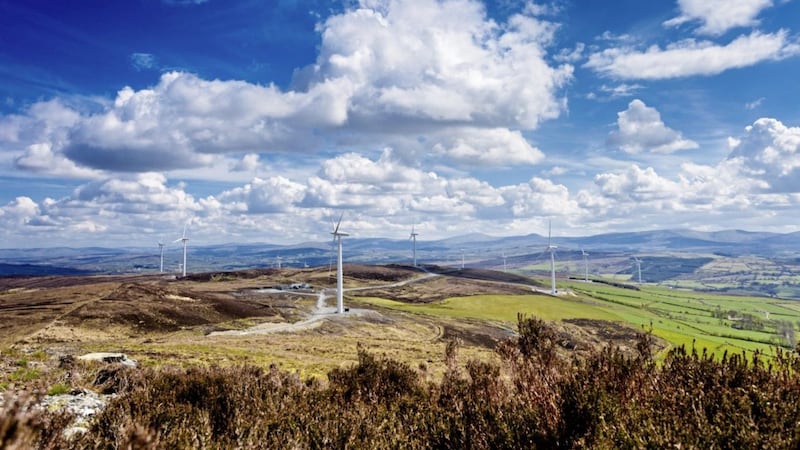THE Belfast registered holding company for power giant SSE’s onshore wind operations has reported a pre-tax profit of £85 million for the 2020-21 financial year.
Registered at Millennium House on Belfast’s Great Victoria Street, SSE Renewables Onshore Windfarm Holdings acts a holding company for the group’s swathe of wind farms mostly located across Northern Ireland and Scotland.
It currently owns the Bessy Bell wind farms near Omagh and Tievenameenta at Killeter, near the Tyrone and Donegal border. It also owns the north’s largest wind farm, Slieve Kirk, located near Limavady.
The company reported huge profits in recent years due to the disposal of wind farms in Scotland and Co Tyrone.
Last year it reported a pre-tax profit of £150.6m following the sale of part of the Slieve Divena Wind Farm to Greencoat UK in February 2020 for £51m.
The eight wind turbines are located next to Tyrone GAA’s headquarters in Garvaghey, near Ballygawley.
The London-listed renewable infrastructure fund previously acquired 12 turbines in the first phase of the Slieve Divena project in 2017 as part of a £105m deal that included an offshore wind farm near Liverpool.
SSE Onshore Windfarm Holdings reported a pre-tax profit of £543.6m in 2019 after selling stakes in three Scottish wind farms.
The latest accounts filed with Companies House cover the year ending March 31 2021.
It shows SSE’s onshore wind business paid a dividend of £78.4m to its parent undertaking, SSE Renewables Limited.
Subsequent to the 2020-21 reporting period, the north’s Utility Regulator revealed that the summer of 2021 was one of the mildest for wind since 1961.
Power generation from wind dropped by 62 per cent in July 2021.
It was listed a contributing factor in the hike of domestic electricity tariffs later in the year as suppliers had to rely on fossil fuels.








